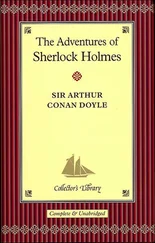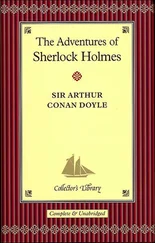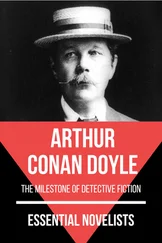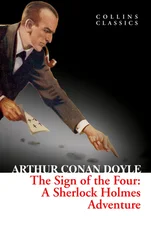Arthur Doyle - Beyond The City
Здесь есть возможность читать онлайн «Arthur Doyle - Beyond The City» весь текст электронной книги совершенно бесплатно (целиком полную версию без сокращений). В некоторых случаях можно слушать аудио, скачать через торрент в формате fb2 и присутствует краткое содержание. Жанр: Классическая проза, на английском языке. Описание произведения, (предисловие) а так же отзывы посетителей доступны на портале библиотеки ЛибКат.
- Название:Beyond The City
- Автор:
- Жанр:
- Год:неизвестен
- ISBN:нет данных
- Рейтинг книги:4 / 5. Голосов: 1
-
Избранное:Добавить в избранное
- Отзывы:
-
Ваша оценка:
- 80
- 1
- 2
- 3
- 4
- 5
Beyond The City: краткое содержание, описание и аннотация
Предлагаем к чтению аннотацию, описание, краткое содержание или предисловие (зависит от того, что написал сам автор книги «Beyond The City»). Если вы не нашли необходимую информацию о книге — напишите в комментариях, мы постараемся отыскать её.
Beyond The City — читать онлайн бесплатно полную книгу (весь текст) целиком
Ниже представлен текст книги, разбитый по страницам. Система сохранения места последней прочитанной страницы, позволяет с удобством читать онлайн бесплатно книгу «Beyond The City», без необходимости каждый раз заново искать на чём Вы остановились. Поставьте закладку, и сможете в любой момент перейти на страницу, на которой закончили чтение.
Интервал:
Закладка:
"Well, I know something about it. You see I've never lived very far from it, and I do a good deal of my aunt's business."
"Maybe you know Bread Street?"
"It is out of Cheapside."
"Well then, how do you steer for it from here? You make me out a course and I'll keep to it."
"Why, Admiral, I have nothing to do. I'll take you there with pleasure."
"Will you, though? Well, I'd take it very kindly if you would. I have business there. Smith and Hanbury, financial agents, Bread Street."
The pair made their way to the river-side, and so down the Thames to St. Paul's landing-a mode of travel which was much more to the Admiral's taste than 'bus or cab. On the way, he told his companion his mission and the causes which had led to it. Charles Westmacott knew little enough of City life and the ways of business, but at least he had more experience in both than the Admiral, and he made up his mind not to leave him until the matter was settled.
"These are the people," said the Admiral, twisting round his paper, and pointing to the advertisement which had seemed to him the most promising. "It sounds honest and above-board, does it not? The personal interview looks as if there were no trickery, and then no one could object to five per cent."
"No, it seems fair enough."
"It is not pleasant to have to go hat in hand borrowing money, but there are times, as you may find before you are my age, Westmacott, when a man must stow away his pride. But here's their number, and their plate is on the corner of the door."
A narrow entrance was flanked on either side by a row of brasses, ranging upwards from the shipbrokers and the solicitors who occupied the ground floors, through a long succession of West Indian agents, architects, surveyors, and brokers, to the firm of which they were in quest. A winding stone stair, well carpeted and railed at first but growing shabbier with every landing, brought them past innumerable doors until, at last, just under the ground-glass roofing, the names of Smith and Hanbury were to be seen painted in large white letters across a panel, with a laconic invitation to push beneath it. Following out the suggestion, the Admiral and his companion found themselves in a dingy apartment, ill lit from a couple of glazed windows. An ink-stained table, littered with pens, papers, and almanacs, an American cloth sofa, three chairs of varying patterns, and a much-worn carpet, constituted all the furniture, save only a very large and obtrusive porcelain spittoon, and a gaudily framed and very somber picture which hung above the fireplace. Sitting in front of this picture, and staring gloomily at it, as being the only thing which he could stare at, was a small sallow-faced boy with a large head, who in the intervals of his art studies munched sedately at an apple.
"Is Mr. Smith or Mr. Hanbury in?" asked the Admiral.
"There ain't no such people," said the small boy.
"But you have the names on the door."
"Ah, that is the name of the firm, you see. It's only a name. It's Mr. Reuben Metaxa that you wants."
"Well then, is he in?"
"No, he's not."
"When will he be back?"
"Can't tell, I'm sure. He's gone to lunch. Sometimes he takes one hour, and sometimes two. It'll be two to-day, I 'spect, for he said he was hungry afore he went."
"Then I suppose that we had better call again, " said the Admiral.
"Not a bit," cried Charles. "I know how to manage these little imps. See here, you young varmint, here's a shilling for you. Run off and fetch your master. If you don't bring him here in five minutes I'll clump you on the side of the head when you get back. Shoo! Scat!" He charged at the youth, who bolted from the room and clattered madly down-stairs.
"He'll fetch him," said Charles. "Let us make ourselves at home. This sofa does not feel over and above safe. It was not meant for fifteen-stone men. But this doesn't look quite the sort of place where one would expect to pick up money."
"Just what I was thinking," said the Admiral, looking ruefully about him.
"Ah, well! I have heard that the best furnished offices generally belong to the poorest firms. Let us hope it's the opposite here. They can't spend much on the management anyhow. That pumpkin-headed boy was the staff, I suppose. Ha, by Jove, that's his voice, and he's got our man, I think!"
As he spoke the youth appeared in the doorway with a small, brown, dried-up little chip of a man at his heels. He was clean-shaven and blue-chinned, with bristling black hair, and keen brown eyes which shone out very brightly from between pouched under-lids and drooping upper ones. He advanced, glancing keenly from one to the other of his visitors, and slowly rubbing together his thin, blue-veined hands. The small boy closed the door behind him, and discreetly vanished.
"I am Mr. Reuben Metaxa," said the moneylender. "Was it about an advance you wished to see me?"
"Yes."
"For you, I presume?" turning to Charles Westmacott.
"No, for this gentleman."
The moneylender looked surprised. "How much did you desire?"
"I thought of five thousand pounds," said the Admiral.
"And on what security?"
"I am a retired admiral of the British navy. You will find my name in the Navy List. There is my card. I have here my pension papers. I get L850 a year. I thought that perhaps if you were to hold these papers it would be security enough that I should pay you. You could draw my pension, and repay yourselves at the rate, say, of L500 a year, taking your five per cent interest as well."
"What interest?"
"Five per cent per annum.
Mr. Metaxa laughed. "Per annum!" he said. "Five per cent a month."
"A month! That would be sixty per cent a year."
"Precisely."
"But that is monstrous."
"I don't ask gentlemen to come to me. They come of their own free will. Those are my terms, and they can take it or leave it."
"Then I shall leave it." The Admiral rose angrily from his chair.
"But one moment, sir. Just sit down and we shall chat the matter over. Yours is a rather unusual case and we may find some other way of doing what you wish. Of course the security which you offer is no security at all, and no sane man would advance five thousand pennies on it."
"No security? Why not, sir?"
"You might die Tomorrow. You are not a young man. What age are you?"
"Sixty-three."
Mr. Metaxa turned over a long column of figures. "Here is an actuary's table," said he. "At your time of life the average expectancy of life is only a few years even in a well-preserved man."
"Do you mean to insinuate that I am not a well-preserved man?"
"Well, Admiral, it is a trying life at sea. Sailors in their younger days are gay dogs, and take it out of themselves. Then when they grow older thy are still hard at it, and have no chance of rest or peace. I do not think a sailor's life a good one."
"I'll tell you what, sir," said the Admiral hotly. "If you have two pairs of gloves I'll undertake to knock you out under three rounds. Or I'll race you from here to St. Paul's, and my friend here will see fair. I'll let you see whether I am an old man or not."
"This is beside the question," said the moneylender with a deprecatory shrug. "The point is that if you died Tomorrow where would be the security then?"
"I could insure my life, and make the policy over to you."
"Your premiums for such a sum, if any office would have you, which I very much doubt, would come to close on five hundred a year. That would hardly suit your book."
"Well, sir, what do you intend to propose?" asked the Admiral.
"I might, to accommodate you, work it in another way. I should send for a medical man, and have an opinion upon your life. Then I might see what could be done."
"That is quite fair. I have no objection to that."
Читать дальшеИнтервал:
Закладка:
Похожие книги на «Beyond The City»
Представляем Вашему вниманию похожие книги на «Beyond The City» списком для выбора. Мы отобрали схожую по названию и смыслу литературу в надежде предоставить читателям больше вариантов отыскать новые, интересные, ещё непрочитанные произведения.
Обсуждение, отзывы о книге «Beyond The City» и просто собственные мнения читателей. Оставьте ваши комментарии, напишите, что Вы думаете о произведении, его смысле или главных героях. Укажите что конкретно понравилось, а что нет, и почему Вы так считаете.











